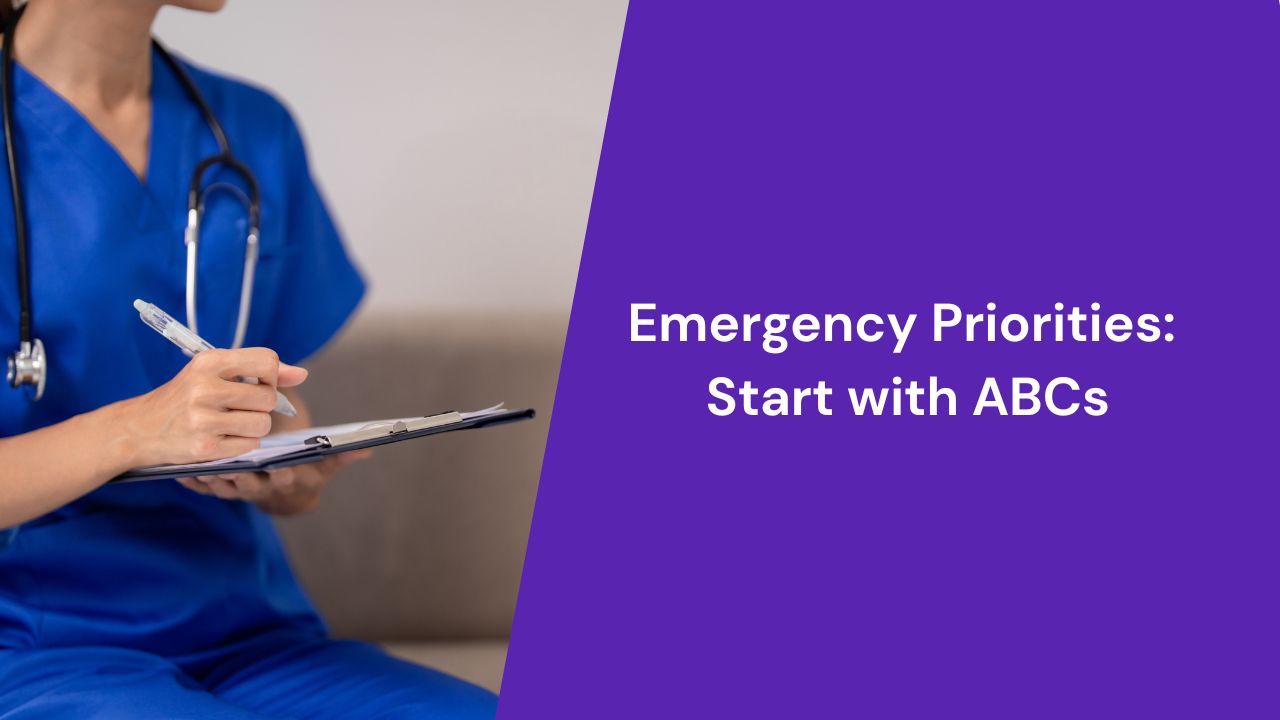So, you’ve decided you want to become a nurse. That’s a major decision, one that the entire country should applaud you for. The nursing shortage is a very real challenge impacting people and communities everywhere.
Our country needs you.
We’re excited for you to go down this path, and we hope you achieve everything you want and more in your nursing career.
Nursing is a dynamic profession offering variety, specialization, generalization, income security, challenges, big and little wins, and so much opportunity. Sounds like a lot, huh? Did you think the big decisions were over since you’d already settled on the profession?
Actually, the decisions are just beginning. But don’t let that worry you; this decision-making process can be exciting. Choosing nursing as a career means choosing a path that you can alter and shape into the kind of nurse you want to be. You can play to your strengths, shore up your weaknesses, and find your place in nursing.
But first, you’ve got to become a nurse, which means acceptance into a nursing program. This article is a resource guide to help you identify nursing school requirements and prompt your thinking so you can learn more about how to get into nursing school.
What Are the Prerequisites for Nursing School?

Prerequisites for nursing programs vary, particularly between licensed practical nursing programs (licensed vocational nursing in California and Texas) and registered nursing programs. Nevertheless, one requirement typically applies across the board: a high school or general equivalency diploma (GED).
Other prerequisites for a nursing program may also include English composition, biology or microbiology, chemistry, statistics, and anatomy and physiology. Discussing prerequisite specifics with a school guidance counselor is a good idea.
If you already have your high school diploma or GED, it’s time to decide what kind of nursing program you want. Do you want to become a registered nurse (RN) or a licensed practical/vocational nurse (LPN/LVN)?
Should I Choose an LPN or RN Program?
The differences between these two levels of licensure are in the length of time it takes to complete the programs, the depth of skills and knowledge offered in the curricula, the nursing scope of practice, and the earning potential when you become licensed to practice.
The type of nursing license you pursue is another one of those big decisions that you’ll need to make, and it will impact your future nursing career, so take the time to research and think about what’s best for you. We’ve written an article that provides a thorough breakdown of the differences between RNs and LPNs.
How Do I Find Nursing Schools near Me?
Although it’s become second nature for most of us to look everything up online, we’d argue that your state's board of nursing is the most reliable resource for finding the best nursing schools near you.
If you can’t find a list of state-approved programs on the board of nursing website, then reach out to request it. The state boards must approve nursing programs for graduates to sit for the licensure exam. Moreover, around half of the boards of nursing in the country stipulate that their state’s nursing programs must have accreditation. As a result of this strict regulation, most state boards of nursing not only maintain a list of approved or accredited programs in their state but also track pass and fail rates for each program’s graduates who sit for the National Council Licensure Examination (NCLEX).
The NCLEX pass/fail rates are helpful to aspiring nurses like you because, no matter what nursing school you start at, you must obtain a license to officially become a nurse. Selecting a program with solid pass rates can give you confidence in your decision, and who doesn’t want more confidence?
FAQs About the Various Types of Nursing Programs
If only it were as easy as picking the nursing school with the best NCLEX pass rates. Although it could be for some, for many, there are other factors to consider, such as the following:
- How long is the program? LPN/LVN programs typically range from 12-18 months, while RN programs usually require two to four years, depending on your degree (Associate’s Degree in Nursing (ADN) or Bachelor of Science in Nursing (BSN)).
- Does the program offer an accelerated option? Accelerated programs are sometimes available for Bachelor of Science in Nursing or Master of Science in Nursing (MSN) degrees, where the nursing students are on a fast track to graduation.
- Can I attend the program part-time as my finances and other obligations allow? Not everyone has the funds or the time to study full-time. Some people have caregiver responsibilities that impact how much time they can dedicate to the program, while others may pace themselves with what they can afford.
- How much does the program cost? Analyze your current finances and ask questions about the cost of tuition, books, and other fees. The more you can plan and budget for costs, the better.
- What are the financial aid options available? Do your research for this one and read the fine print to be sure you understand any requirements or stipulations for receiving any financial aid, be it loans, grants, or scholarships. Some may stipulate that you can’t work or may impose a minimum GPA on all your courses, for example. On loans, look at the repayment terms: Know when your first payment is due (is there a deferment period?), know what the interest rate is and whether it is fixed or variable, and know what potential penalties there are for late or missing payments. We wrote an article about nursing student loans to help shed some light on the topic.
- How far away from where I live is the school? Consider travel time if you will be living off-campus. Do you have alternate transportation options if your car breaks down? Is the nursing program closest to you the better overall choice?
- Does the program offer virtual learning? Some nursing programs have established hybrid learning curricula where students can complete some classes online. These programs are often favorable for nursing students juggling other life responsibilities or who live further away from campus.
- Do I meet the requirements to apply? Just because you’ve read the application requirements for one nursing school does not mean you know them for all nursing schools. Review the application requirements thoroughly before applying. If you don’t meet the criteria, you’ll likely waste your application fee on an automatic rejection letter.
How to Get into Nursing School
Once you’ve done your research, it’s time to take action. Nursing programs are generally under the umbrella of a community college or technical school (most LPN/LVN programs) or a private or public college or university (most RN programs). Therefore, you’ll first need to gain admission to the institution as a student. After this, you’ll want to promptly meet with a counselor to determine your coursework schedule. Some colleges and universities will have you declare your major as pre-nursing.
LPN programs usually do not award a degree; they give a certificate or a diploma. Once you’re officially a student at the community college or technical school, if you didn't provide an ACT or SAT score with your application, you may have to complete placement tests to determine your readiness for college-level courses.
RN programs can award either an ADN or a BSN. In either case, the curriculum varies, as do the prerequisites.
There are no guarantees for acceptance into a nursing program. Pay attention to your guidance counselor, and study hard for solid grades overall, not only in your required courses.
What about Nursing School Entrance Exams?
Many nursing schools administer entrance exams to prospective nursing students. The HESI A2 is a common entrance exam used to predict a student’s success in the nursing program. Although not all nursing programs require entrance exams, the number of nursing schools that don’t require HESI or another form of nursing entrance exam is low.
Study guides and practice tests are available for most nursing entrance exams to help you prepare to do your best.
What about Nurse Practitioner Schooling?
Nurse practitioners (NPs) are registered nurses with advanced degrees, usually MSN or Doctor of Nursing Practice (DNP) degrees. Programs for nurse practitioners usually require anywhere from two to five years to complete. Furthermore, NPs earn and maintain a national certification in their specialty and retain their licensure. If you want to learn more, we’ve written an article about nurse practitioner degree programs.

What Schooling Does a Nurse Anesthetist Have?
Nurse anesthetists (CRNAs) are advanced practice registered nurses who have graduated from an accredited nurse anesthesia program. According to the American Association of Nurse Anesthesiology (AANA), 130 nurse anesthesia programs exist throughout the US and Puerto Rico, and program duration typically ranges from 24 to 51 months.
Are you a certified nursing assistant working your way through a nursing program? Find higher pay rates and a better balance between work and school by picking up per diem CNA shifts on Nursa.











.jpg)
.webp)

